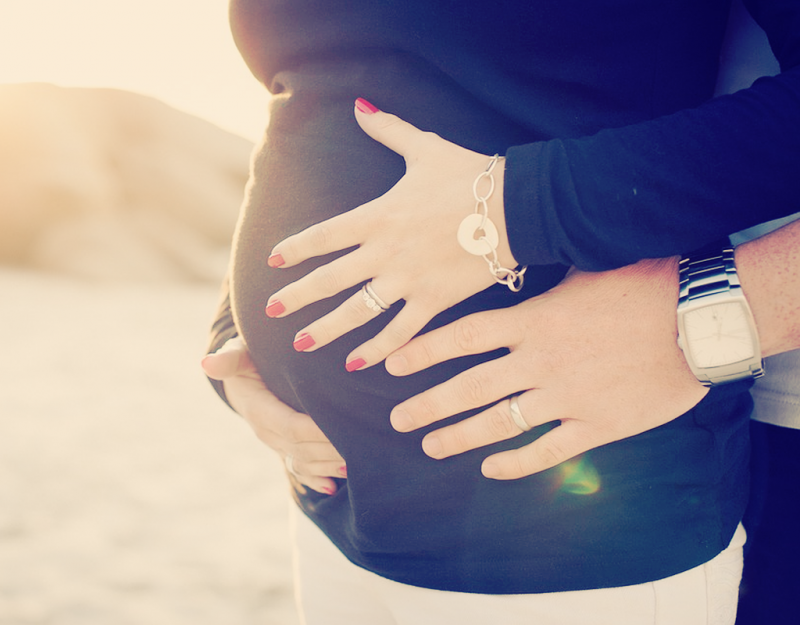Early pregnancy symptoms include happy experiences along with the dreaded morning sickness. Quickening is one of those special moments in your pregnancy that, for many women, inspires the very exciting realisation that your life, indeed, is about to change.
What is Quickening?
Quickening usually occurs between 16 – 20 weeks of pregnancy. Those regular butterfly-like flutters you feel low down in your belly are a lovely reminder of the amazing changes your body is growing through as your baby develops.
It may feel like gas or an upset tummy but it really is baby on the move. Quickening starts from week 16 but becomes more pronounced by week 18 – 20. You may find it easier to feel those early movements if you lie down. The distinctive kicks and punches are still a few weeks away and that is most likely when your partner will be able to feel baby’s movements, too.
Remember to tell your doctor or midwife at your next visit – this is something to celebrate. If you haven’t felt your baby move yet, don’t worry – some women report movements come later, or less often. If you have any concerns, speak to your doctor or midwife.
Your baby’s movements
Movement of your baby can vary in intensity. It can range from a faint flutter, sometimes described as a feeling of butterfly or a gas bubble in early pregnancy, to brisk motions or even painful kicks and pressure as your baby gets larger.
Women often ask how often a baby should move. They want to know if they should be concerned if the baby moves too much or doesn’t move enough. These are hard questions to answer because your sensation is different from that of another woman. The movement of each baby you carry may be different. It is usually more reassuring to have a baby move frequently. But it isn’t unusual for a baby to have quiet times when there is not as much activity.
If you’ve been on the go, you may not have noticed the baby move because you have been active and busy. It may help to lie on your side to notice if the baby is moving or still. Many women report their baby is much more active at night, keeping them awake and making it hard to sleep.
If your baby is quiet and not as active as what seems normal or what you expected, discuss it with your doctor. You can always visit your doctor or midwife to hear the baby’s heartbeat if the baby hasn’t been moving in its usual pattern. In most instances, there is nothing to worry about.
Kick Count
Toward the end of pregnancy, you may be asked to record how often you feel the baby move. This test is done at home and is called a kick count. It provides reassurance about fetal well-being. Your doctor may use one of two common methods. The first is to count how many times the baby moves in an hour. The other is to note how long it takes for baby to move 10 times. Usually you can choose when you want to do the test. After eating a meal is a good time because baby is often more active then.
Pain under your ribs when baby moves
Some women complain of pain under their ribs and in their lower abdomen when their baby moves. This type of pain isn’t an unusual problem, but it may cause enough discomfort to concern you. The baby’s movement has increased to a point where you will probably feel it every day, and movements are getting stronger and harder. At the same time, your uterus is getting larger and putting more pressure on all your organs. Your growing, expanding uterus presses on the small bowel, bladder and rectum.
If the pressure really is pain, don’t ignore it. You need to discuss it with your doctor. In most cases, it isn’t a serious problem.
This article was written for Kidspot NZ, New Zealand’s parenting resource for during your pregnancy.







Leave A Comment
You must be logged in to post a comment.